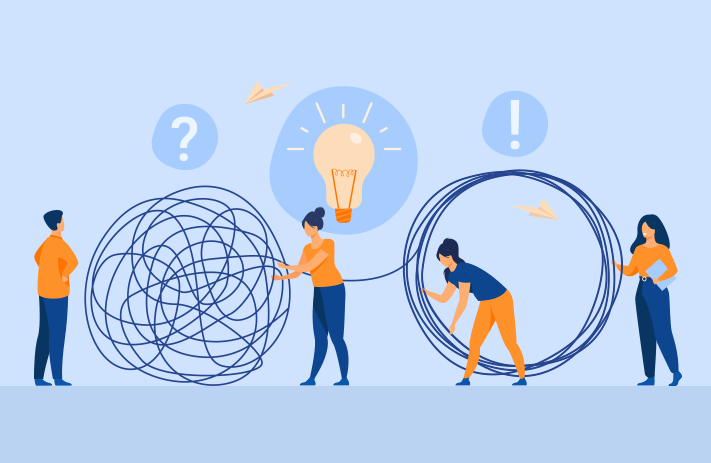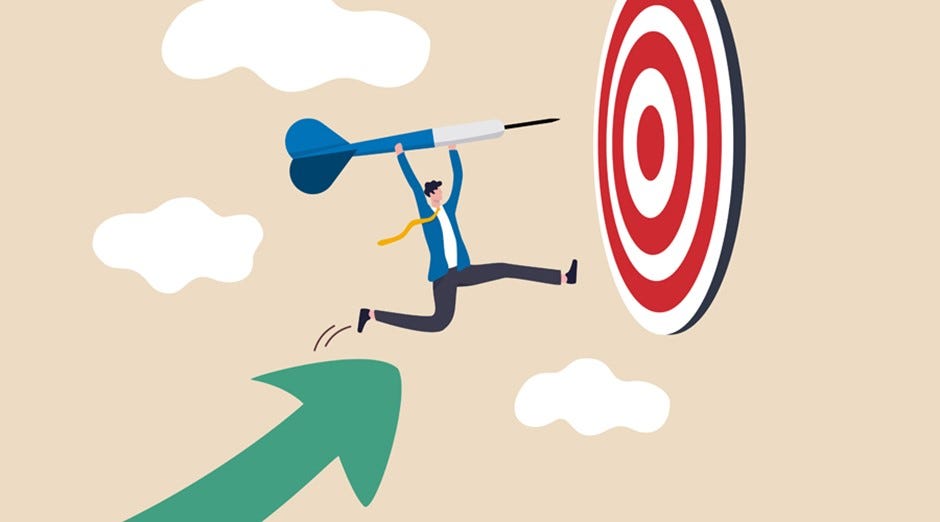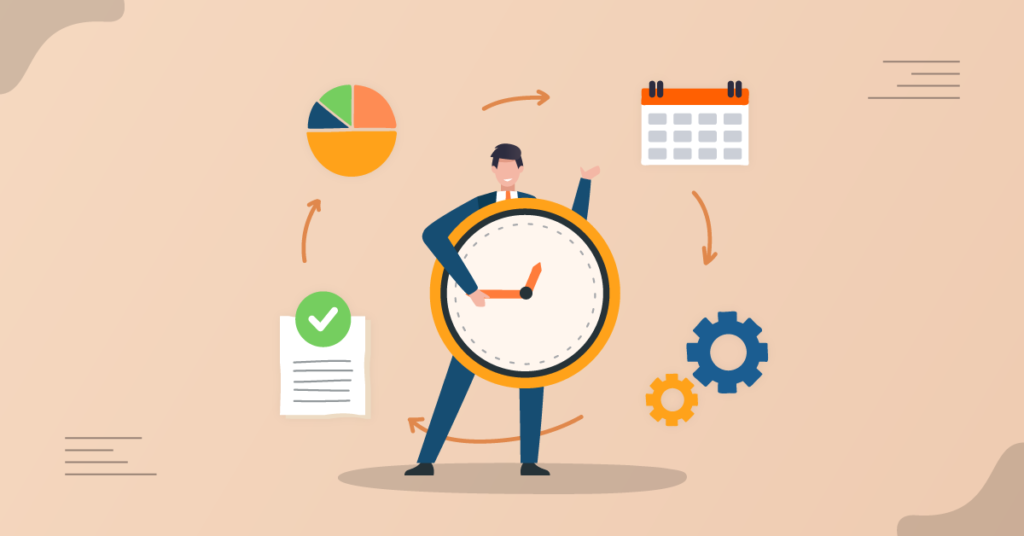Stephen Covey’s book the 7 habits of highly effective people’ has become a cornerstone of personal development literature. With over 25 million copies sold, this book introduces a timeless framework for becoming highly effective both personally and professionally. Covey’s seven habits focus on character ethics rather than personality traits, emphasizing internal change for external success. This article delves into each of these seven effective habits, exploring how they can help you become more productive, successful, and balanced in every aspect of life.
The Seven Habits of Highly Effective People:
- Be Proactive
- Begin with the End in Mind
- Put First Things First
- Think Win-Win
- Seek First to Understand, Then to Be Understood
- Synergize
- Sharpen the Saw
Each habit builds upon the previous one, creating a cohesive system that can be applied to both personal growth and leadership. These 7 habits foster long-term success by focusing on what truly matters in life, rather than quick wins.
Understanding the 7 Habits of Highly Effective People
Let’s explore each of Stephen Covey’s 7 habits in detail, providing practical applications and insights into how they can help you become a more effective person.
Habit 1 – Be Proactive

According to seven habits of highly effective people’s author, the basis of this is proactive behavior. It focuses on taking control of your life by being responsible for your actions, rather than reacting to circumstances. Covey defines proactivity as the ability to choose your response to any situation. Instead of being driven by external forces, proactive individuals focus on their ability to control their behavior. They recognize that while they can’t always change their circumstances, they can control how they react to them.
Benefits of Being Proactive
Proactive people are empowered, confident, and goal-oriented. By taking responsibility for their actions, they reduce stress and gain more control over their lives. This mindset also leads to better decision-making and improved personal relationships, as proactive individuals focus on growth rather than excuses.
Practical Ways to Be Proactive in Everyday Life
- Take ownership of your actions, no matter the external factors.
- Identify areas where you have control, and focus your energy on those.
- Shift your mindset from blaming others to finding solutions.
Habit 2 – Begin with the End in Mind

The second of Covey’s 7 effective habits is all about setting clear goals and visualizing success. This habit encourages you to identify what you want to achieve in life and align your actions accordingly.
The Importance of Setting Clear Goals
According to Covey, highly effective people start with a clear vision of their desired outcome. By understanding your end goals, you can ensure that your daily activities are contributing to your long-term success. This concept applies to both personal and professional goals.
Benefits of Having a Clear Vision
When you begin with the end in mind, you increase focus and motivation. This clarity ensures that you stay on the right path and make decisions that lead to success, both in business and in life.
Practical Application of “Beginning with the End in Mind”
- Write a personal mission statement that defines your values and goals.
- Divide up big goals into smaller chunks.
- Reflect on your decisions to ensure they align with your long-term vision.
Habit 3 – Put First Things First

Prioritization is crucial for effectiveness. Habit 3 emphasizes the importance of organizing tasks based on what’s truly important rather than what seems urgent. In order to crack this one, we need understanding of Eisenhower Matrix, so let’s find that out first.
Understanding the Eisenhower Matrix
Covey uses the Eisenhower Matrix to help individuals distinguish between urgent and important tasks. The Eisenhower Matrix is a time-management tool that helps prioritize tasks based on urgency and importance. It divides tasks into four quadrants: (1) Urgent and Important, requiring immediate attention (e.g., meeting deadlines); (2) Not Urgent but Important, essential for long-term goals and should be scheduled (e.g., strategic planning); (3) Urgent but Not Important, which can be delegated (e.g., routine emails); and (4) Not Urgent and Not Important, which should be minimized or eliminated (e.g., distractions like social media). This matrix encourages focusing on important tasks while managing distractions.
Benefits of Prioritizing Effectively
Effective prioritization reduces stress and increases productivity. By focusing on important tasks, you’ll make meaningful progress toward your goals without getting caught in the cycle of constant crisis management.
Habit 4 – Think Win-Win

Think Win-Win is a mindset that seeks mutual benefit in all interactions. Covey stresses that highly effective people strive for solutions where everyone involved gains something.
What Does “Win-Win” Mean?
A win-win mindset sees life as cooperative rather than competitive. Covey contrasts this with other mentalities such as win-lose (one party benefits at the expense of the other) and lose-lose (both parties fail).
Benefits of the Win-Win Approach
A win-win mindset fosters trust, strengthens relationships, and creates lasting partnerships. By focusing on mutual benefit, you build an environment where everyone is motivated to succeed.
Building Win-Win Relationships
- Focus on finding solutions that satisfy both your needs and the needs of others.
- Develop empathy to comprehend other people’s viewpoints.
- Aim for collaboration instead of competition in both personal and professional settings.
Habit 5 – Seek First to Understand, Then to Be Understood

The significance of listening with empathy is emphasized in the fifth habit. Before we can effectively communicate our own point of view, we must first understand others.
The Importance of Empathetic Listening
Stephen Covey’s seven habits explains that most people listen with the intent to reply, not to understand. By focusing on understanding others first, we create stronger relationships and minimize misunderstandings.
Benefits of Empathetic Listening
Empathetic listening fosters deeper connections and trust. It improves communication, reduces conflict, and ensures that everyone involved feels valued and understood.
Practical Tips for Becoming a Better Listener
- Pay attention to the speaker and don’t consider how you will respond.
- Reflect on what’s being said before offering your thoughts.
- Make use of active listening strategies by summarizing and seeking clarification where necessary.
Habit 6 – Synergize
In 7 effective habits of highly effective people synergy is about collaboration and teamwork, where the whole is greater than the sum of its parts. Covey believes that synergistically working with others leads to innovative solutions.
What Does Synergy Mean?
Synergy is the result of teamwork where diverse ideas and perspectives come together to create something better than any one person could achieve alone.
Benefits of Synergizing
Synergy leads to greater creativity and innovation. Teams that embrace synergy can solve complex problems more effectively, leading to breakthroughs that would not be possible through individual effort.
Practical Ways to Achieve Synergy in Teams
- Encourage open communication and brainstorming sessions.
- Accept diversity and make the most of each team member’s special abilities.
- Focus on shared goals to foster collaboration.
Habit 7 – Sharpen the Saw
The final habit is about self-renewal. Covey emphasizes that highly effective people continuously invest in themselves to maintain their effectiveness over time.
The Four Dimensions of Renewal
Covey highlights four dimensions of renewal: physical, mental, emotional, and spiritual. Balancing these areas ensures long-term effectiveness and well-being.
Benefits of Continuous Renewal
Regular self-care prevents burnout and ensures sustainable success. By continuously sharpening the saw, you can maintain your productivity and effectiveness for years to come.
Practical Ways to “Sharpen the Saw”
- Physical: Exercise regularly and maintain a healthy diet.
- Mental: Read, learn new skills, and challenge your mind.
- Emotional: Build strong relationships and manage stress.
- Spiritual: Reflect on your purpose and values.
How to Implement the 7 Habits in Your Life
Adopting 7 Habits of Highly Effective People starts with small, consistent actions. Begin with one habit, practice it daily, and gradually incorporate the others.
- Track your progress: Keep a journal to reflect on how each habit impacts your life.
- Start small: Focus on mastering one habit before moving on to the next.
- Be patient: Building habits takes time, but consistency will lead to lasting change.
Conclusion
This book offers a transformative approach to personal and professional growth. By adopting these seven habits, you can increase your productivity, strengthen relationships, and achieve long-term success. Start today by embracing one habit, and watch how it transforms your life.
